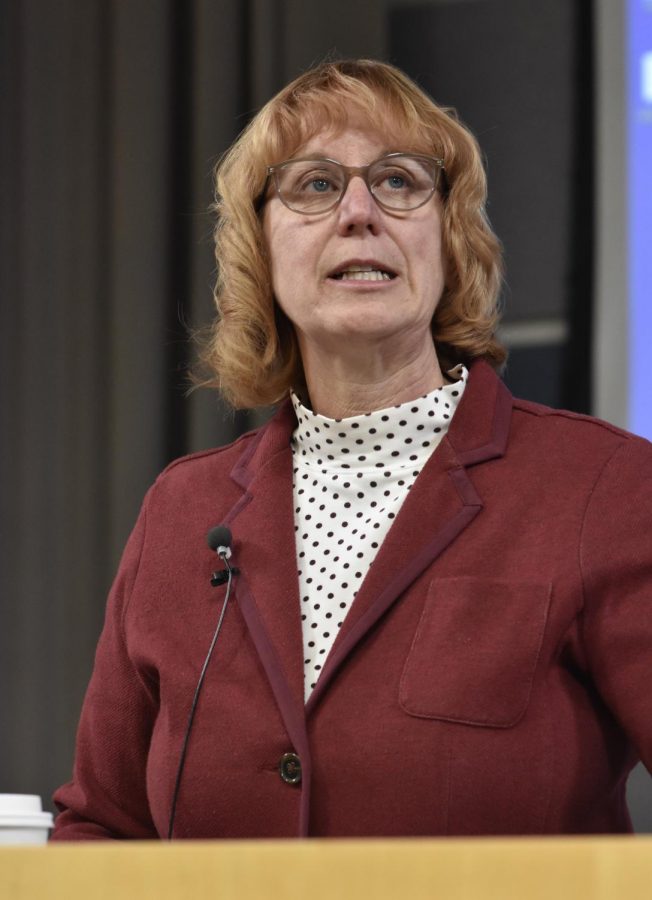Faculty Regent proposal stalls in state gov’t
Bill would add faculty position to WSU’s, UW’s Board of Regents
BONNIE JAMES | Daily Evergreen File
Faculty Senate Chair Judi McDonald said she supports the proposal to add a Faculty Regent.
March 23, 2018
A bill that would have allowed a faculty member to sit on the Board of Regents at both WSU and University of Washington remains stagnant in state government, despite university officials supporting the idea and the position being common at other institutions.
Joan Wu, WSU’s faculty legislative representative, said House Bill 1437 was introduced in state government last year. It earned support from 84 of 98 state representatives, but stalled in the state Senate. It was reintroduced this year, but has not progressed past committees.
Wu said the short legislative session could have halted the bill’s progress.
She said it would be logical to have a faculty member on the board.
“I think faculty members are really the workers in the trench,” she said, “working with students on a daily basis.”
The bill, which was first read and referred to the Committee on Higher Education in January 2017, stated both WSU and UW would have a Board of Regents with 11 members. The 11th member would be a full-time or emeritus member of the faculty.
The governor would choose the faculty member from a list of between two and five candidates submitted by the Faculty Senate. The member would hold their term for three years.
It is very common to have a faculty member on a university’s Board of Regents, said Michael Poliakoff, president of American Council of Trustees and Alumni.
He said it is important for a board to have the academic expertise needed for understanding the mission and the operations of the institution.
“It does make a lot of sense,” Poliakoff said.
However, he said, Faculty Regents face certain constraints. They cannot be a faculty delegate, but rather a board member looking out for the public good.
Boards often have representatives who are tied to specific constituencies, occupations or other groups, he said, but they must leave those ties behind when they walk into board meetings.
“Whatever it might be,” Poliakoff said, “that person has to be a board member like all other board members who represents the public interest.”
He said it is important the faculty member is not seen as the voice of the faculty, because it could discourage other members from staying in tune with faculty concerns.
Judi McDonald, WSU Faculty Senate chair, said one common objection is that university employees do not typically sit on the Board of Regents.
McDonald said that independent of the bill, the Faculty Senate is discussing how to interact with the Regents. The Senate wants faculty members to be more present, she said, and to have representation at Regents’ meetings, which are public.
“I believe,” she said, “that information flow in both directions will help both groups.









